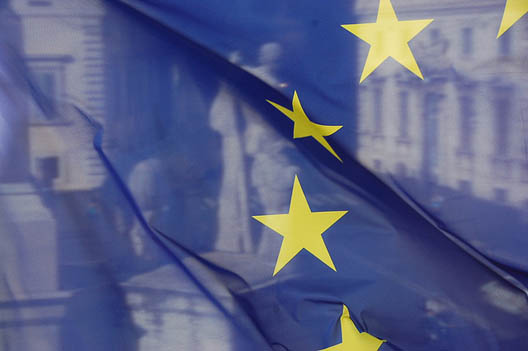
Sometime soon, the prospect of the European holiday calendar will force the pace, and the European Union will have a new management team. A new European Commission will alter relations among member states and between them and the European institutions in Brussels. Of course, it will not put an end to the tug and pull among them about the distribution of power.
Nor will a new Commisison alter the current mosaic of different historical experiences, memories, threat perceptions, and perspectives that are the hallmark of Europe and make the EU such a challenging instrument to manage. The new Commission will not significantly alter the sour mood of mistrust either in which the EU is held in many corners of Europe. Former head of the Commission Jacques Delors demonstrated that a visible and strong leader can provide effective European leadership. But the outlook is for an individual who will be judged by key member states to be malleable. European publics long for fresh faces, which are not on offer. Key to the choice for EC Commission president will be the position of the German government. No candidate will stand a chance without Chancellor Merkel’s endorsement.
The novelty of a new set of personalities will pique grass-roots interest among Europeans. But this is likely to be short lived. New faces could, over time, improve the standing of the EU in public opinion. This is not a given. The composition of the new Commission will be the result of intensive horse trading involving candidates many of whom have spent their better years in domestic politics. The line-up of the new team must reflect balance – geographic, small/large/country, gender – and this is not a recipe for excellence. Despite all these handicaps there is room for individual Commissioners to make their mark, as some have in the past.
Regardless of the makeup of the new Commission, major challenges will remain. Key is the issue of EU membership. This is not so much about enlargement as it is about whether Scotland declares independence, how Catalonia and the Basque country handle their claims for self-determination, and whether the UK remains a member of the EU. Another issue – back again with a vengeance – is European security, especially of the countries on the Eastern flank of the EU. So is the issue of immigration, which is getting ever more serious, as conditions in Africa and the Middle East increase the refugee flow. The hardest challenge may be the revitalization of the European economy. The EU machinery will find these issues hard to digest.
While the American public has never shown much interest in the EU, US politicians and experts have worked productively with their counterparts, especially on trade issues, including recently the proposed “grand bargain” of a Transatlantic Trade and Investment Partnership (TTIP). The interface between Washington and the EU is intense and has been largely positive. In this area the quality and political heft of the EU Commission will be crucial. In the area of foreign policy, the current High Representative for Foreign Affairs, Baroness Ashton, has laid the groundwork for effective cooperation with key EU countries and with the United States on issues ranging from Iran to Ukraine. This has furthered American interests.
On the issue of its ultimate objective, however, the EU has lost focus. Since the Treaty of Rome, this iconic objective has been “an ever closer union.” But the recent elections to the European parliament confirm a trend in European public opinion toward more national autonomy and less power for Brussels, putting the isssue of national versus EU autonomy on the table once again. Many European politicians call for less Europe. Chancellor Merkel, however, has stuck to the mantra of “more Europe.” Any European banking regulation scheme – much desired by many in Europe – would do precisely that.
This may not matter too much to Washington, as long as Europe pursues prosperity, practices democracy and human rights, and is willing to join with the US in the pursuit of common objectives. But the transatlantic interface will remain a challenge. At the top level, the American president will still need to deal with an EU represented by three individuals, the chairman of the Council of Ministers, the president of the Commission, and the High Representative for Foreign and Security Policy. This is not a workable arrangement. As to defense, the old issue of burden sharing will not go away, and needs to be faced in the EU, as in NATO. As the Ukraine crisis has shown, policy coordination between Washington, EU Brussels and national capitals is far from perfect. The new Commission will have only a partial handle on these issues.
The bottom line in transatlantic relations will be as before: a determined willingness to work these issues together. This outcome is not a sure thing. However, a new Commission could help make that happen.
Image: (Photo: Flickr/Waldopics/CC License)
